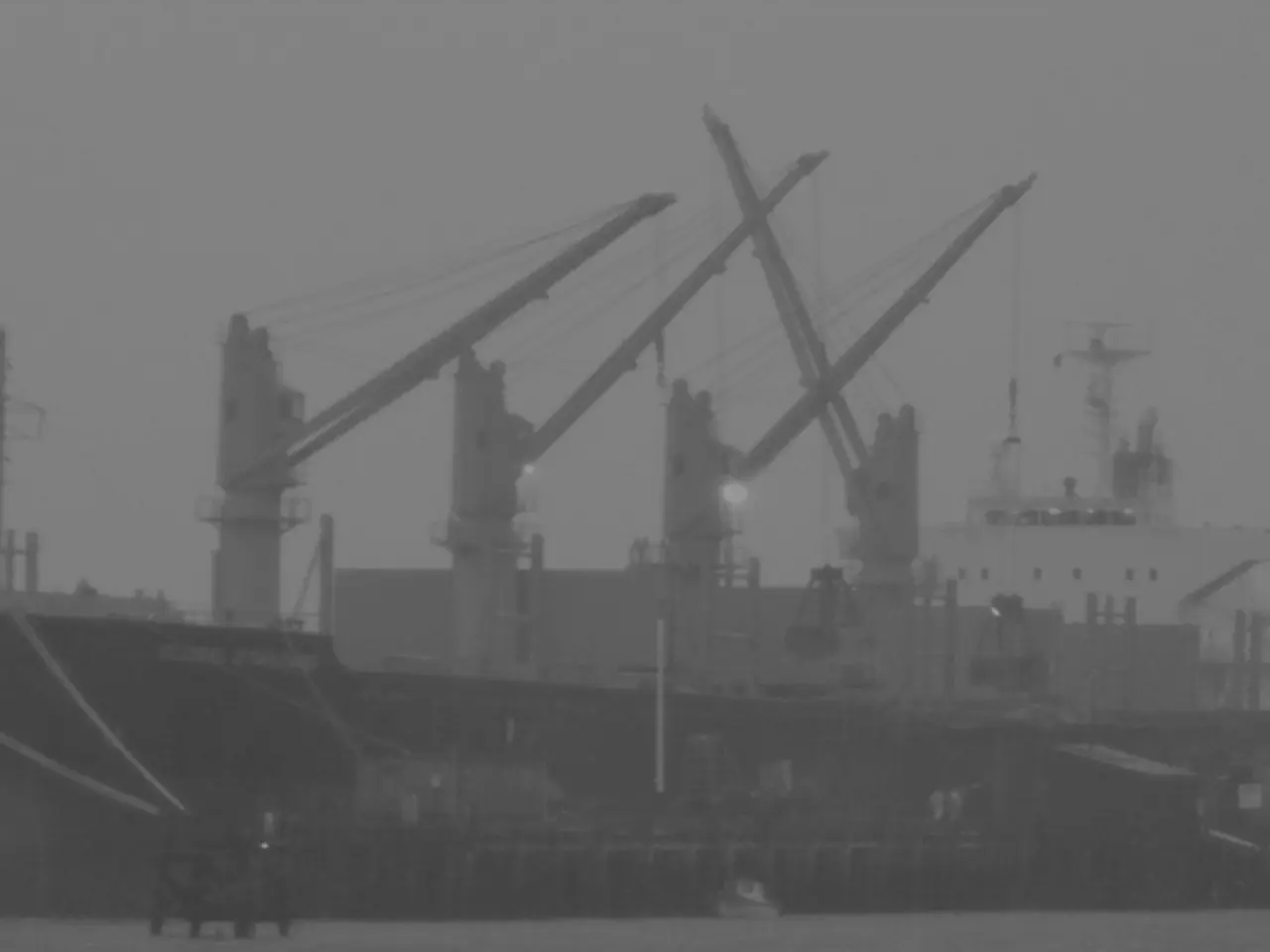Philippine and Indian navies commence inaugural joint patrols in the South China Sea
In a significant development, the Philippines and India embarked on their first-ever joint naval patrol in the South China Sea earlier this month, focusing on the West Philippine Sea, which is part of the Philippines' exclusive economic zone (EEZ)[1][2]. The joint drills involved three Indian naval vessels, including the guided missile destroyer INS Delhi, and two Philippine frigates.
The partnership aligns with ongoing efforts by the Philippines to uphold international maritime law, including the United Nations Convention on the Law of the Sea (UNCLOS)[2]. The joint patrol signals a strategic pushback against China’s expansive territorial claims in the South China Sea, which China asserts sovereignty over nearly entirely. China has frequently harassed Philippine vessels in these waters through coast guard and maritime militia actions[1][2].
During the patrol, the focus was on replenishment at sea, joint maneuvers, and communication protocols to enhance mutual preparedness, build trust, and strengthen operational synergy in maritime security[2][4]. India’s involvement broadens the coalition of countries working with the Philippines, following other partners such as the US and Japan.
Regarding China’s response, no direct confrontations occurred during the joint patrol, but Philippine military officials confirmed they were monitored by Chinese vessels, an expected stance from Beijing, which likely views the India-Philippines collaboration with discontent[2]. China has repeatedly accused the Quad, a four-way partnership that includes the US, India, Japan, and Australia, of being created as a way of containing China.
This naval exercise is part of broader defense and diplomatic cooperation, coinciding with Philippine President Ferdinand Marcos Jr.'s state visit to India, symbolizing a deepening bilateral relationship and shared interest in regional stability[2][3]. Marcos praised the two countries' "steadfastness in upholding international maritime law, including the UNCLOS" before departing for India.
All eyes will be on any potential defense agreements during Marcos' visit to India. Marcos is expected to sign pacts in fields such as law, culture, and technology in India. Beijing, which claims almost the entirety of the South China Sea, despite an international ruling that their assertion has no legal basis, remained on "high alert" during the mentioned patrols.
In summary, the joint naval patrols between the Philippines and India mark a significant new trilateral dynamic in the South China Sea, enhancing maritime security cooperation. The focus is on countering instability and upholding international maritime norms, specifically reinforcing the Philippines' EEZ rights against Chinese claims. The patrol is part of a broader push for regional stability and upholding international law.
[1] ABS-CBN News. (2025, August 3). Philippines, India start first-ever joint naval patrol in South China Sea. Retrieved from https://news.abs-cbn.com/news/08/03/25/philippines-india-start-first-ever-joint-naval-patrol-in-south-china-sea
[2] Reuters. (2025, August 3). Philippines, India start first joint patrol in disputed South China Sea. Retrieved from https://www.reuters.com/world/asia-pacific/philippines-india-start-first-joint-patrol-disputed-south-china-sea-2025-08-03/
[3] The Hindu. (2025, August 3). India, Philippines to hold first joint naval exercise in South China Sea. Retrieved from https://www.thehindu.com/news/international/india-philippines-to-hold-first-joint-naval-exercise-in-south-china-sea/article65096180.ece
[4] The Diplomat. (2025, August 3). India and the Philippines Kick Off Their First-Ever Joint Naval Patrol in the South China Sea. Retrieved from https://thediplomat.com/2025/08/india-and-the-philippines-kick-off-their-first-ever-joint-naval-patrol-in-the-south-china-sea/
- The partnership between the Philippines and India during their first-ever joint naval patrol in the South China Sea aims to support international maritime law, particularly the United Nations Convention on the Law of the Sea (UNCLOS).
- India's involvement in the joint patrol expands the coalition of countries working with the Philippines, including nations like the United States and Japan, in an effort to counter China's expansive territorial claims.
- In the wake of this joint naval exercise, India and the Philippines are expected to sign agreements in fields such as law, culture, and technology, further solidifying their bilateral relationship and shared focus on regional stability and upholding international norms.







